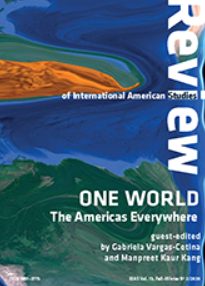Collaborative Futures: Arts Funding and Speculative Fictions
Collaborative Futures: Arts Funding and Speculative Fictions
Author(s): J. D. SchnepfSubject(s): Sociology of the arts, business, education, Sociology of Art
Published by: Wydawnictwo Uniwersytetu Śląskiego
Keywords: arts funding; arts institutions; Kickstarter; privatization; speculative fiction;
Summary/Abstract: According to scholars of literary sociology, US arts institutions—from the federal government to the writers’ colony to the creative writing program—have been central to the shaping of US literature for the better part of a century. This paper offers a preliminary investigation of the global crowdfunding platform Kickstarter as an emerging arts institution. Drawing on Kim Stanley Robinson and Marina Abramović’s artistic collaboration as a case study, the paper argues that the appearance of the Marina Abramović Institute (MAI) in Robinson’s novel New York 2140 troubles the author’s stated generic commitments to “realist speculative fiction”—fiction that bases its vision of the future on the state of things in our present. In addition to furnishing uncertain conditions of production for the novel, Kickstarter’s funding model solicits short-form speculative fiction organized around neoliberal selfhood from its artists. With the assistance of Kickstarter’s networked platform, the MAI’s capital campaign reimagined private funding as public performance art, as dutiful civic engagement, and as reward for artists willing to narrate entrepreneurial optimism.
Journal: Review of International American Studies
- Issue Year: 13/2020
- Issue No: 2
- Page Range: 145-158
- Page Count: 14
- Language: English

